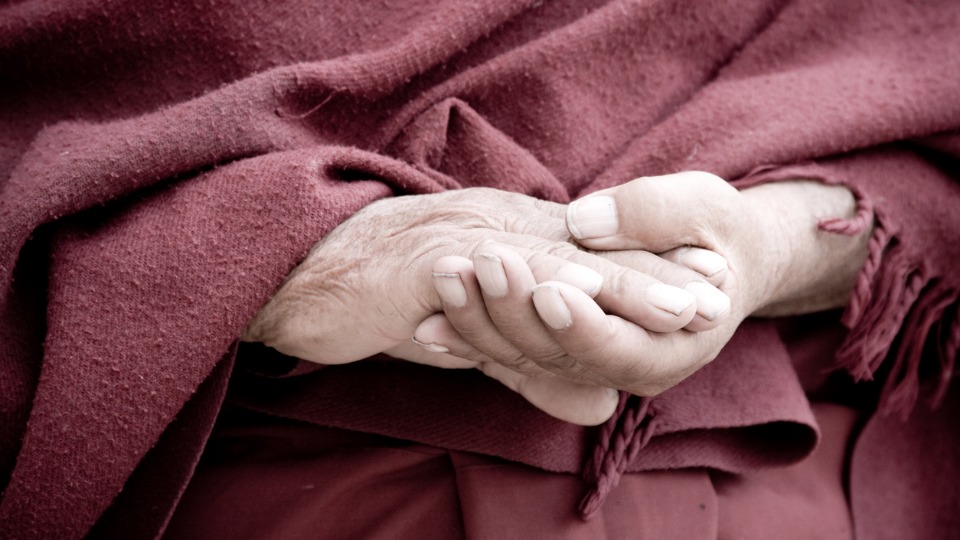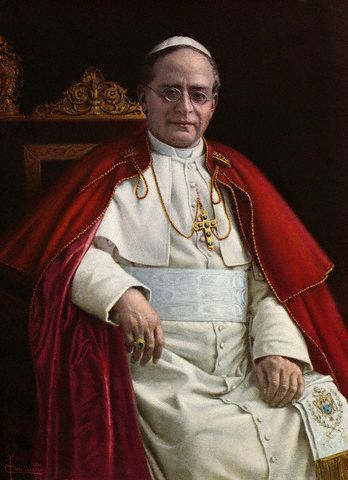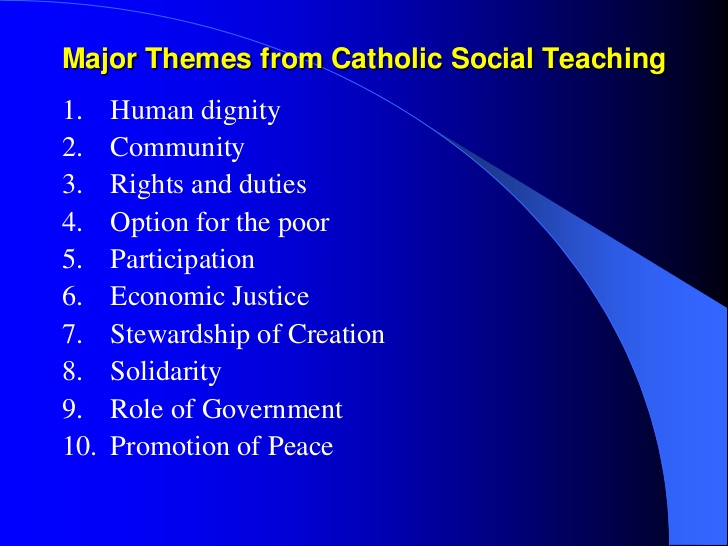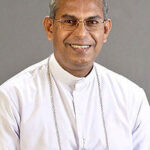
Catholic Missionary Interventions and Best Practices in the Context of Pandemic Covid-19 in India
Today the whole world is living under the fear of Covid-19. In this situation of pandemic, everyone is in the shadow of kindness. The Church, Government and organizations are facing stark realities and in confusion not knowing how to move ahead with the existing situations. It is impossible to say what the solution is, but it is essential to find out what should be the priority. This article seeks to point out more sustainable and invasive methods, rather than underestimating the preventive measures taken by others. The relief activities and Covid-19 treatments carried out by the government system are based on their own political agenda and motivations. Political goals and its ideologies keep constantly changing. The ultimate goal of the Church’s social interventions throughout history has been the salvation of souls, mission work, evangelism and practicing the Catholic social teachings of the Church.

According to Catholic Social Teachings poverty is connected with powerlessness and non-participation in society, illiteracy, unhygienic, immunity problem etc. So our teaching on poverty has grown from simple assistance with a meal or shelter to encompass an array of necessary responses in advocacy for social and economic changes, empowerment of individuals and groups, political participation and economic development of the marginalized people by micro-finance support, promotion of social entrepreneurship, growth of community health, sanitation programs, technological supports and inclusive policy. In the context of Covid-19, this pandemic is mostly affecting the vulnerable communities and this situation may continue in future as well as the, Catholic Church has its own limitations to control the spread of the virus. But as a religious institution, the Church can provide many relief measures for protection and the livelihood of the needy people. This article explores how the Church can transform its social activities into mission work at a time when the whole world is collapsing.
Poor Relief and Missionary Activities in the Holy Bible
It is God’s nature to seek man in his helpless environment. When Adam and Eve acquiesced to Satan’s temptations and sinned against God in the Garden of Eden, He came searching for them and calling, “Where are you?” (Gen 3:9). This question and inquiry testify to the nature of God’s love and care for human generations. He continually seeks to initiate reconciliation between Himself and His fallen creation. God demonstrated His nature of love and care by sending His one and only Son into the world. The emphasis of John’s Gospel “For God so loved the world, that he gave his only born Son, that whoever believes in him should not perish, but has eternal life” (Jn 3:16). It projects the very nature of God. He is always giving, relating, reconciling, redeeming! From the very foundation of the world, God has been the great initiator of mission and redeemer of humanity, as vividly portrayed by the acts of God both in the Old and the New Testaments”. The ultimate goal of Jesus’ incarnation was the liberation of souls and the redemption of mankind. Truly, the Holy Bible describes God’s constant and continuous interventions in mankind’s ultimate salvation to heaven.
St. Paul was the greatest man who preached the Gospel to the gentiles ministering among the non- Christians in a scholarly manner. To preach in Athens he took every available opportunity to share the gospel. In the history of evangelization, a contextual approach and experiment with models adapted to such circumstance have been found a complete success. So, in today’s particular context it is necessary to abandon the old and expired styles, in order to implement the creative new styles in a constructive manner.

Church Doctrines on Social Teaching
Catholic Doctrinal Social teachings reflect the positions of the Church on social issues for each period and its Biblical and traditional interpretations. While the world evaluates social issues on the basis of the contemporary Philosophies, the Church must evaluate them on the basis of the unchanging Divine laws, Tradition, revelation and the will of God.
Rerum Novarum (On the Condition of Labor) 15 May 1891, Pope Leo XIII
The modern Catholic social teaching began in the response to the entanglements of the capitalist system and communist ideology. According to capitalist philosophy, they propagate man as a cruel slave in the factories. Communist manifesto based on the philosophy of blasphemy, atheism and materialism. These both failed to explain the divine nature of human being. They discussed only the relationships and mutual duties between labor and capital, as well as government and its citizens. This Encyclical encourages the world to see each as complimentary by mitigating the conflict between them. The primary concern was the need for some amelioration of “the misery and wretchedness pressing so unjustly on the majority of the working class”. Pope Leo XIII first established the principles that design the priority option for the poor.

Quadragesimo Anno (On the Reconstruction of the Social Order) 15 May 1931, Pope Pius XI
Commemorating the 40thanniversary of Rerum Novarum, this encyclical offers an update on the state of labor and industrialization, and strong critiques of communism, unrestrained capitalism, class conflict, and inequalities. Pope Pius XI teaches that, “Dignity and human freedom are ethical considerations, which cannot be solved by a hostile class confrontation. Ethics are based on religion and this is the realm where the Church meets industrial society”. “…if human society is to be healed, only a return to Christian life and institutions will heal it. …this alone can draw away men’s eyes, fascinated by and wholly fixed on the changing things of the world, and raise them toward Heaven…”

Mater et Magistra (Christianity and Social Progress) 15 May 1961, St. John XXIII
This encyclical, promulgated 70 years after Rerum Novarum, looks to the Church as the “Mother and Teacher,” calling the world to salvation and better social relationships. Economic progress should balance with social progress, especially a reduction in inequality. St. John XXIII expressed concerns for the growing gap between rich and poor nations, for the plight of farmers and rural areas, and the time has come to promote in agricultural regions the establishment of those industries and services which are concerned with the preservation, processing and transportation of farm products.
Pacem in Terris (Peace on Earth) 11 April 1963, St. John XXIII
This encyclical was issued two months before Pope’s death and is the first to be directed to “all men of good will,” instead of just to be Catholics. St. John XXIII calls for the development of a world authority to protect the universal common good. He clearly establishes “that every man has the right to life, to bodily integrity and to the means which are suitable for the proper development of life”.

PopulorumProgressio (On the Development of Peoples) 26 March 1967, St. Paul VI
This encyclical examines the economy on a global level, and addresses the rights of workers to decent job, just wages, proper working conditions and erecting sacred edifices. In the context of economic resection, after the World II, the Church has been responsible to save those living in the mist of extreme poverty and economic collapse. In this context, the missionaries have also been promoted for the construction of hospitals, sanitariums, schools and universities. Blessed Paul VI examined the Church ultimate goal is to the teaching and baptizing. Fundamentally, the salvation of the souls and human problems interlinked, the preaching of the Gospel to the poor as a sign of His mission, the Church has never failed to foster the human progress of the nations to which she brings faith in Christ.

Laborem Exercens (On Human Work) 14 September 1981, St. John Paul II
Issued to mark the 90thanniversary of Rerum Novarum, this encyclical once again emphasizes the dignity of work and the rights of workers, and the priority of labor over capital. St. John Paul II also addresses disabled workers, emigration, materialism, and the spirituality of work. Man has to subdue the earth and dominate it, because as the “image of God” he is a person, that is to say, a subjective being capable of acting in a planned and rational way, capable of deciding about himself, and with a tendency to self-realization. As a person, man is therefore the subject of work.
Sollicitudo Rei Socialis (On Social Concern) 30 December 1987, St.John
Paul II
St. John Paul II criticizes the East-West attitude of development and other “structures of sin”. It compromises the progress of poor nations, and calls for solidarity between rich and poor nations. He discloses the condemnation of evils and injustices also part of that ministry of evangelization in the social field which is an aspect of the Church’s prophetic role. But it should be made clear that proclamation is always more important than condemnation, and the latter cannot ignore the former….

Centesimus Annus (The Hundredth Year) 1 May 1991, St. John Paul II
On the 100th anniversary of Pope Leo XIII’s Rerum Novarum, throughout this encyclical the Pope calls on the state to be the agent of justice for the poor and to protect human rights of all its citizens. It focuses on the moral dimensions of economic life, the advantages and limitations of the market, the role of business and the responsibilities. At the same time, an essential condition for global solidarity is autonomy and free self-determination, also within associations such as those indicated. But at the same time solidarity demands a readiness to accept the sacrifices necessary for the good of the whole world community.
Evangelium Vitae (The Gospel of Life) 25 March 1995, St. John Paul II
The encyclical addresses social and ecological factors, stressing the importance of a society which is built around the family rather than a wish to improve efficiency and emphasizing the duty to care for the poor and the sick. This encyclical explored many threats to human life, including the evils of abortion, euthanasia, birth controlled by contraception and sterilization, and the practices of the death penalty.
Deus Caritas Est (God is Love) 25 December 2005, Pope Benedict XVI
Benedict’s first encyclical emphasized the connections between love of God and love of neighbor. Pope Benedict XVI wrote that Charity, furthermore, cannot be used as a means of engaging in what is nowadays considered proselytism…But this does not mean that charitable activity must somehow leave God and Christ aside. For it is always concerned with the whole man. Often the deepest cause of suffering is the very absence of God. He located love of the poor at the center of Catholic life.

Caritas in Veritate (Charity in Truth) 26 June 2009, Pope Benedict XVI
This encyclical dealt with the ethics of contemporary economics, poverty, development, global solidarity, charity, justice, common good, rights and duties and care for creation. The Church appreciates the charity that arises from the experience of Christ’s love. Without God man neither knows which way to go, nor even understands who he is. In the face of the enormous problems surrounding the development of peoples…. Jesus teaches us: “Apart from me you can do nothing” (Jn 15:5) and then encourages us: “I am with you always, to the close of the age” (Mt 28:20) …
The Joy of the Gospel, Apostolic Exhortation (Evangelii Gaudium) 24 November 2013 Pope Francis
Catholic Social Service should not be limited to economic growth; it requires decisions, program, mechanisms and processes specifically geared to a better distribution of income, the creation of sources of employment and an integral promotion of the poor which goes beyond a simple welfare mentality. It is essential to see new areas of poverty, in which we are called to recognize the suffering Christ, like the homeless, the addicted, refugees, indigenous peoples, the elderly who are increasingly isolated and abandoned, orphan children, those who thirst for love and many others. Migrants present a particular challenge and many groups eager to defend for keeping their identity. For this reason, Pope exhorts all countries to a generous openness which, rather than fearing the loss of local identity, will prove capable of creating new forms of cultural synthesis and space to express it.
Laudato Si’ (Praise Be) 24 May 2015, Pope Francis
This encyclical aims to present the Church’s view of present ecological crisis caused by human uncontrolled maneuvers. It emphasizes the beauty of nature, the effects of industrialization on the environment and the importance of integral ecology. Pope Francis provides a thorough analysis of human life and its three intertwined relationships: with God, with our neighbor, and with creation. It also emphasizes the importance of dialogue with business, call to ecological conversion, shifting of technocratic paradigm to integral ecology of humankind etc. Many of the poor live in areas particularly affected by phenomena related to warming, and they largely depend on natural resources and ecosystemic services such as agriculture, fishing and forestry. It is the poor who are going to be most affected by the environmental issues, so the Church aims at sustainable development considering the next generation too.

Theology of Catholic Social Teaching
Catholic social teaching (CST) and the secular social studies are entirely different, one based on Divines and other mere materialism. Both have some common principles of human dignity, solidarity, and subsidiary. But CST of these social principles, in combination with our faith, we will be more armed and informed as to articulate the Catholic vision of reality, the truthful nature of the human person and society, and through the virtue of charity take action within the social, political, and economic spheres in which we have influence.
Dichotomy Between Social Work Philosophy and Catholic Social Teaching
In the past 150 years, Catholic Social Teaching (CST) aims to contribute to the formation of a society marked by peace, concord, human dignity and justice toward all. Sociology and Social Work initially emerged as a science of modernity, pointing throughout the nineteenth and twentieth centuries on the basis of positivism. It points out that, there is a single reality independent of human beings and the methods of the natural sciences. Auguste Comte, the father of positivism, envisioned sociology as the new rational religion of humanity. Post-positivists, Anti-positivist attitude of many Catholic clerics, philosophers, theologians, and Church authorities identified their hidden agenda and rejected their ideology.
The continuation of this controversial attitude can be identifying the contemporary counter relationship between Christian theology and sociology. Both claim to view their disciplines as a science with a distinct methodology. If CST judges a particular social system as unjust, the role of sociology is to test it as a sort of a hypothesis and prove by means of its scientific research whether this moral judgment is empirically true or false. At the same time many of the sociological principles are deeply rooted in Catholic Theology. Any extent on the basis of ‘Fides Et Ratio’ (Faith and Reason), the Church’s methodology of Teaching should influence other secular world. “Revelation therefore introduces into our history a universal and ultimate truth which stirs the human mind to ceaseless effort; indeed, it impels reason continually to extend the range of its knowledge until it senses that it has done all in its power, leaving no stone unturned”. “The wisdom of this world and the wisdom of God revealed in Jesus Christ. The depth of revealed wisdom disrupts the cycle of our habitual patterns of thought, which are in no way able to express that wisdom in its fullness”(1 Cor 1:27-28). But unfortunately, the social work styles we are doing right now are following the guidelines of the secular strategy.
Sociology generally provides a descriptive, scientific and rational knowledge about the world and social behavior. The CST’s and moral theology provides a prescriptive knowledge on how to analyze and change the world based on a set of social doctrines. In many countries like India, the Social Work is still in its infancy, so we need to develop a Social Work Theology in the special context of this pandemic. In understanding the truth and the world, there is often a conflict of perspectives between CST theologians and sociologists. Sociologists, as social scientists, often adopt a cultural relativist understanding of society and culture, while theologians usually adopt an absolutist position in appreciating the universe. Catholic Social Workers need to have a clear understanding about this dichotomy.
Principles of Catholic Social Teaching

Human Dignity: The person is sacred, made in the image and likeness of God (Genesis 1:26).
Community/Common Good: the social nature of the human person, it is the good “of all of us”.
Rights and Duties: Every person has a right to the basic material necessities that are required to live a decent life; it is overwhelming position of Capitalism and Socialism.
Option for the Poor: Remember that to assist the poor from their own resources.
Participation: All people have a right to a minimum level of participation in the economic, political, and cultural life.
Humanism: This is what will guarantee man’s authentic development—his transition from less than human conditions to truly human ones.
Economic Justice: The economy must serve people, not the other way around.
Stewardship of Creation: It considers as a culture of care, and understood more properly in the sense of responsible stewardship. We hold them in trust, as stewards.
Solidarity: It is a firm and persevering determination to commit oneself to the common good and strongly oppose to structural sin.
Promotion of Peace: Peace is not just the absence of war, “If you want peace, work for justice.”
Catholic Perspectives of Social Work
Basically, catholic perspective of social work is rooted in the expression of Faith, “Even so faith, if it has no works, is dead in itself”. (James 2:17). The term charitable service of the Catholic Church as used herein shall mean the activities of solidarity help to people suffering from any need, through mitigation/removal of the need and its causes. Today in context of pandemic it should be more relevant, but not preferential option for the poor and vulnerable includes all who are marginalized in society. It include unborn children, persons with disabilities, the elderly and terminally ill, and the victims of injustice, transgender, domestic violence victims, abused person, and oppression. Many of the original foundations of benevolence and charity have their beginnings in religious institutions. Social work collaboration with faith-based establishments, such as churches, has great potential to optimize internal functions and service to the community. Today the Christian social ministry of the Church is confronted by multiple grave social and moral issues, as well as by the extremes of materialism and various other ideologies and government regulations. Indifference and apathy, cold-heartedness and human alienation, the crash of moral values and spirituality dwell side-by-side with the severe social and economic crisis in society. The Christian understanding of social justice and personal dignity is based on a system of fundamental values and virtues dominated by freedom, equality, solidarity and mercy. Church clearly recognizes its public responsibility and social mission in the modern world and seeks to develop its Christian charity in the spirit of Christian values. Catholic perspective of Charity and Truth are intrinsically same, only activities that hold fast to the Truth will survive.
Catholic Missionary Interventions in the Context of Covid-19 in India
The Covid-19 immunization campaigns in India cannot be claiming to be successful because of the prevalence and transition. In most of the cities right now the situation has even reached community transmission. Millions of Indian population is going through infections and casualties. Prime Minister Narendra Modi had clamped a national lock down on 24 March, 2020 in a bid to protect the country and the citizens from the virulent virus. The national lock-down helped significantly to contain the spread of the virus and preventing the dreadful community spread. However, the lockdown turned out to be the beginning of the misery for hundreds of thousands of vulnerable communities, including workers of the un-organized sector whose lives were upended by the sudden lockdown.

There are 174 dioceses in India organized into 30 provinces and we have about half lakh education institutions and other institutions as well. The Government of India, including state governments are trying to propagate their political ideology through our social interventions; because of this reason they pressurize to collecting the contributions from our institutions and several places they discourage the direct distribution of products. But our institutions are rallying, as a collective, to provide succor to the hundreds and thousands of poor people without any prejudices. Catholic Church in India stands together in solidarity with the government in its firm resolve to overcome the unprecedented challenge of defeating the virus, because of this reason we also experience some limitations especially promotion of Christian Values. Catholic Church has opened relief distribution points across India to provide preventive equipment, health care support, food and dry ration to the most vulnerable sections of the community. Several schools, Parish halls and Churches have been transformed as relief distribution points and quarantine centers and many hospitals have thrown open their doors for accommodating the infected people. The main segments of population that receives aid from Catholic Church are slum dwellers, migrant laborers, geriatric settings, beggars, households with persons with special needs, transgender, widows, people living on the streets and the homeless. The Church must adopt her own strategy in rehabilitation, treatment and immunity development, at the same time in full compliance with government guidelines on disease control and prevention. Let us examine the important areas in which the Church is involved to prevent Covid-19.
Food Support
All the institutions have started food distribution centers. They organize community kitchens in slums, city peripheries, transit points of migrants, villages with considerable migrant population and localities with vulnerable and marginalized communities like transgender, trafficked women and the others for distributing food and food supplies. Culturally appropriate food and provisions were procured locally and special care was taken to keep the food materials, pest free, clean and safely packaged before distributing.

Protection and prevention
Firstly, we made sure that everything in our institutions met the Covid-19 protocol. Prevention and protection solutions like masks, sanitizers, gloves, hygiene kits are still not accessible, especially for the poor, due to issues related to availability and affordability. Church supported agencies and different NGO’s are distributing sanitizers, masks and hygiene kits freely to vulnerable communities. Religious nuns and several such agencies have started units to manufacture masks for free distribution to vulnerable communities.
Awareness Campaigns
With the permission of administration, Church agencies have been conducting awareness campaigns, workshops, distributing leaflets, different types of training programs for making hygiene kit, promoting and popularizing prevention measures like personal hygiene practices, disinfection, social distancing, waste management etc. among communities.
Care to Migrants
Migrants are the most affected section of the lockdown. A large section of the most vulnerable communities, including migrants, daily wage laborers, the homeless and the destitute suffers. Catholic Church is supporting these vulnerable communities with masks, sanitizers, providing shelters, medicine, travelling supports and food supplies.
Support to Government Health Care System
The Catholic Church has a very advanced and active healthcare, Psychiatric, and Social Work educational and research institutions. Today, the Church is facing challenges in areas where the services of public health sector institutions have limited. Many church hospitals have offered their premises as quarantine and care centers and several schools have offered their facilities for setting up isolation centers. In Kerala alone, there are 6000 beds in 200 Catholic hospitals ready to provide treatment to the Covid-19 patients. Church institutions have also donated health care equipment and supplies, including masks to government hospitals and set up hygiene and drinking water points in government-run isolation camps.
Psycho-Social Support
This Pandemic is a time when a lot of research and experimentation was done on mental health care and wellbeing. The Church interventions were not insignificant when suicides were on the rise as a result of the lockdown. They are aimed at the general emotional well-being of communities and helping them cope with the ordeal and distress that normally occur in a time of disaster. The joint work of mental health centers and Social Work educational institutions should be highlighted. Church agencies have activated online and telephone-helpline and counseling services with professional counselors to offer psychosocial support to the corona-affected communities.
Some Best Pastoral Practices in a Time of Covid-19
In this time of Covid-19, the clergy and the entire baptized are called to be witnesses of strength, and every members of the Church have a great duty and responsibility to courage, and faith. The first priority of the Church should be the spiritual health of the faith community. Many times, in the Bible, we see God as one who changes His decisions by human tears. We have to make a difference in our routine activities and try to win over those who come for their own different needs. Without confusing to Government activities, we should cooperate with all common machineries which are preventing Covid-19. In the midst of sadness and death, members of the Church have the opportunity to be the healing power of Christ to others.

Healing through Prayer
Countries that do not allowed opening their church to pray have higher Covid-19 cases than those countries that have opened their Churches for prayers. Catholic Christians, as disciples of Jesus, have always joined in prayer during times of plague and illness throughout the ages. Like Fr. Damian to do the spiritual needs of the sick until the last moment of their death. Without hesitation, permit them all kinds of honorable burial services, at the same time keeping the government protocol. The healing services of the Church can be shown by the loving kindness of God. As Pope Francis said that, “Let us pray to the Lord also for our priests, that they may have the courage to go out and go to the sick people to bring the strength of God’s word and the Eucharist and accompany the health workers and volunteers in this work that they are doing”.
Church Ministers to do Adequate Education and Precaution
The World Health Organization and the Centers advising for Disease Control and Prevention (CDC) are the two sources with trusted medical professionals. We need to be aware of the new proposals that are emerging at the national and international level and plan activities accordingly.
Communication
In this fast-paced crisis, communicating early and often with various Church constituencies is vital. In the event that direct contact is not possible, proper communication should be made accessible by alternative means. Pastors are encouraged to proper communication with staff, school administrators, parishioners, and benefactors. At the same time, we should note that communication takes place in practice, mentally, emotionally, socially, character-wise, at the level of human relationship and with age. The concerned authorities should ensure that the communication takes place effectively in every setting.
Digital Pastoral Care
In COVID-19 pandemic situation, where community prayers and public worship are banned, many people meet their spiritual needs with the help of digital media. This new reality has created a massive new viewership for televised and live streamed Masses and other rituals. Pastors should strive to carry out evangelistic work more effectively using such system and with the collective effort of all; the challenge of individual care can be overcome. Individual parishes can promote small digital groups like: Men’s and Women’s faith groups, Bible studies, children’s Catechism, adult faith formation, youth and young adult groups, and even choir practice and performance for inflame the human heart. It seems that the phone can be a powerful pastoral tool and a bridge to a relationship to spiritual communication. This is a great opportunity to Evangelize.
Anointing the Sick and Pastoral Care for Grieved People
The moment of death is the time when the spiritual need is most intense in a person’s life. In this time of the pandemic, very difficult to access hospitals, nursing homes, and health care centers. Availability of facilities have limited or eliminated. This time the priests can give pastoral care and visits to the sick person through digital media. Zoom, Face book, WhatsApp, and Face Time might provide an opportunity to speak and pray with the sick person. This is similar, if someone should be ill with the virus in his or her own home. The celebration of the Anointing of the Sick is one component of pastoral care. Pastors can become preachers of Christ’s service by performing special sacrifices and worship for those suffering from diseases and other ailments.
Responding to Our Neighbor’s Needs
In the Old Testament, God asked Cain, “Where is your brother?” He asks us the same question in this time of crisis, when people are anxious and unsure, community support and accountability networks may fray (Genesis 4:9). Jesus, who taught the scribe that the true neighbor is the one who shows mercy in great distress, still asks us to pour out God’s love (Lk 10:25). The church’s actions, through faith leaders and through the actions of the Body of Christ as a whole, can become model for a wider community what it looks like to care for one another.
Mentally and Spiritually United to Each One
Many parishes today are physically far away from us, and we are also in the throes of isolation from ourselves and those in need. The tendency to be isolated in a selfish world of our own is the general characteristic of today. With a spiritual purpose, the Church must be able to penetrate broken minds by embracing new dimensions of evangelism and ensure that all the possibilities of new media should be used in present pandemic context.

Spiritual Belongings and Social Distance
Social distancing, one of the means to prevent Covid-19, also called “physical distancing,” means keeping a safe space between yourself and other people who are not from your household. Obviously by maintaining physical distance from people directly create a kind of isolation from others. As a catholic we cannot ignore our neighbors, because the parable of Good Samaritan Jesus teaches us that we are to show compassion and love for those we encounter in our everyday activities (Lk 10:37). In the context of today’s pandemic, we have the responsibility to show Christian love and compassion to the needy people. We are all creatures of the creator and we are to love all of mankind as Jesus has taught. As Catholic, mentally and spiritually we need to be close with the needy people, and at the same time, social distancing from others as part of government instruction.
Proclamation of Hope
This is the right time for us to proclaim the teachings of Jesus on hope. His teachings essentially concentrate in eschatological revelation more than materialism. This pandemic situation many of us are down with trials, sorrows, sickness and debilitating worries. When it seems hopeless, Jesus teachings about our future hope can deeply encourage us. God will never forget the needy; the hope of the afflicted will never perish (Psalm 9:18). Jesus also said that “Do not let your hearts be troubled… My Father’s house has many rooms; if that were not so, would I have told you that I am going there to prepare a place for you?” (Jn 14:1-2). Jesus has prepared our accommodation at heaven. He will come again and escort us to Father’s house. He is still performing the role of servant, looking after important guests. This hopeful word helps us to erase our fear of death, where we are all in the dark. Jesus, the Light, guides us on the most fearful and unknown journey of all. St. Paul taught that, death and resurrection of Jesus, He himself victory over death. When the perishable has been clothed with the imperishable, and the mortal with immortality, “Death has been swallowed up in victory”. Here St. Paul has been simplifying the death by following questions, “O death, where is your victory? O death, where is your sting?” Therefore, my dear brothers and sisters, stand firm. Let nothing move you. Always give yourselves fully to the work of the Lord, because you know that your labor in the Lord is not in vain (1 Corinthians 15:54-58).
Social Entrepreneurship for the Promotion of Local Market
The history of the world shows that, several international problems had their origin in the application of market competition; Covid 19 is too, no exception. The role of the market is crucial not only in controlling the economy of a nation but also in determining the political system, social environment and human behavior. As a result of globalization, exploitation is at its peak. Only an economy that free from oppression, transparent, sustainable and popular can promote humanity. Implicit or explicit applications of marketing principles for social good have led to the birth and growth of ‘‘social marketing’’ discipline. Social marketing, Social Entrepreneurship, Innovation and the promotion of Local Market are reducing or ending poverty and exploitation to several related areas such as nutrition, health care, education, economy and political system. It must discover and incorporate concepts and techniques from other disciplines that are aligned around core ideas that are people-centered and socially oriented.

Technological and Innovative Support to the Poor
Poverty is more than just material deprivation. It also involves aspects such as lack of access to quality education and healthcare, vulnerability in the face of external events. Working with technologies means that one works with tools that constantly renew themselves, thereby creating fresh opportunities to address developmental challenges. In a development context, social innovation can best be explained as a novel solution to a social problem that is more effective, efficient, sustainable, or just than existing solutions. Many developmental strategies formulated for the international and national level interventions guided not for the eradication of poverty but for the drive to the institutional and infrastructural conveniences of the upper class. The value of social innovation is that it accrues primarily to society as a whole and wellbeing of the poor rather than to private individuals. Special legislation is required for the implementations of technologies at the local level according to human needs, by doing so, larger needs; including energy can be addressed locally.
Initiating the Decentralization of Capital
Decentralization is the transfer of authority to plan, make decisions and manage public functions from a higher level of government to any individual, organization or agency at a lower level. Decentralization brings about increased opportunities for people to participate in public decision-making, from which they are generally excluded in a highly centralized government system. As a result of Globalization, there is a situation where the entire capital is in the hands of a few individuals. They have the power to control whole world policy and international trade. The actions of such powerful forces are in the forefront and they exploit the poor by control over the capital. Initiating the decentralization of Capital can be identified as the means for defeat their pre-designed system favor to cooperate benefits. So, it is the responsibility of the Church to generally design all means to facilitate the unrestricted consolidation of capital.
Stimulating Primary Economic Sector
The back bone of Indian economy has depended on primary sector. From ancient times, we have witnessed that our ancestors were involved in agriculture, animal husbandry, fishing, cloth weaving etc. There was no dependency for anyone else to meet all their needs. But today there is market exploitation and globalization and as a result the primary backbone of the wealth of the poor has collapsed. Since in India, a good percentage of the population lives below the poverty line, the rising reality of the poor can only be realized through the strengthening of the primary economic sector on which they depend.
Community Health and Immunity Development
Immune system is a complex network of cells that protect or defend the body against infection. It can recognize and destroy the microbes like virus, bacteria or any other enters the human body. If we look at the countries and populations that have been successful in combating with Covid-19, we can see that they are areas that have acquired immunity, not by lockdown or closing places of worship. The drug lobbies are enjoying the power over health sector. As a result of this, they never allow any other alternative solutions in Covid-19. It can be prevented only by enhancing the immune system and improving community health. Therefore, the Church must come forward with such comprehensive moves.

Conclusion
The Church need to be unique in carrying out its activities using its prudence and guidance received from the Holy Spirit. The Church should not overstate the activities of Government, because they may be looking ahead to implement their secular ideology or political agenda. Such ideologies do not necessarily correspond to ecclesiastical pace. The Church needs to have clear cut ideas in carrying out its mission and keep its door open in extending a helping hand to all the religions. And set a good example to all as Christ taught us through his life mission. Another area in which the Church cannot work in the social sphere is the social work sector. Their models have been shaped by the philosophy of contemporary period. Above all, the Church must adopt a more transparent, value based and Gospel rooted practice methodology, may help her to achieve the goal. The social activities and responsibilities of the Church must be considered in the context of the Covid-19 scenario. The pandemic is an opportunity to back from the scholastic methodologies and lavishness in the Church. In accordance with this period, a return based on the social teachings of the Church is inevitable. The growth of faith through social construction is the main agenda of all the institutions in the Church. At this time, however, the Church need to shift from an institution centric style to a mission oriented evangelization strategy. Studies and researches like mine can be helpful for establishing such kind of policies and mission strategies.
One thing needs to be observed of modern era is the competition between right-wing forces and left-wing forces. World War I and II were the culmination of a series of conquering new market and establish colonies. Although world peace was achieved with the establishment of the United Nations, it had to be a victim of the Cold War for several decades. This was alleviated the fall of the Communist Government in Russia led by Mikhail Gorbachev. But under the leadership of China, the Left-wing once again gained strength and has built with a market empire around the world. Along with the political goal, this force has become a global carrier of terrorism. For all this, the market system of globalization was used as a weapon. The world has recognized China’s role in providing assistance to terrorist organization, including IS; and in training and providing weapon to underworld groups. The recent economic growth of China has proved that their hidden agenda and present pandemic has not accidental. The world is being again challenged by China through announcing the Bio-weapon manufacturing laboratory at Pakistan. After all, the intellectual world sees it as the trumpet of World War III. Attempt to counter this have already begun in the right-wing power. Today, the world is on the brink of a recurring conflict between countries ruled by right-wing such as India, Europe, and United States at one side and as well as China, communist countries and extremist Muslim countries in the other side.
The Church is proposing a new paradigm system that will replace these both right and left wings. The care for common home in the encyclical ‘Laudato Si’ and paradigm shift concept in the Amazon Bishop Synod pointed to a new pattern system, totally free from existing tension between left and right wing. For the sake of world peace and the good of humanity, the Church must lead the way in the face of Covid-19 for a new paradigm system that eliminates these destructive powers.

Fr. Robin Thomas
M.Th. Student
Sacred Heart Theological College, Shillong
Diocese of Kanjirappally





